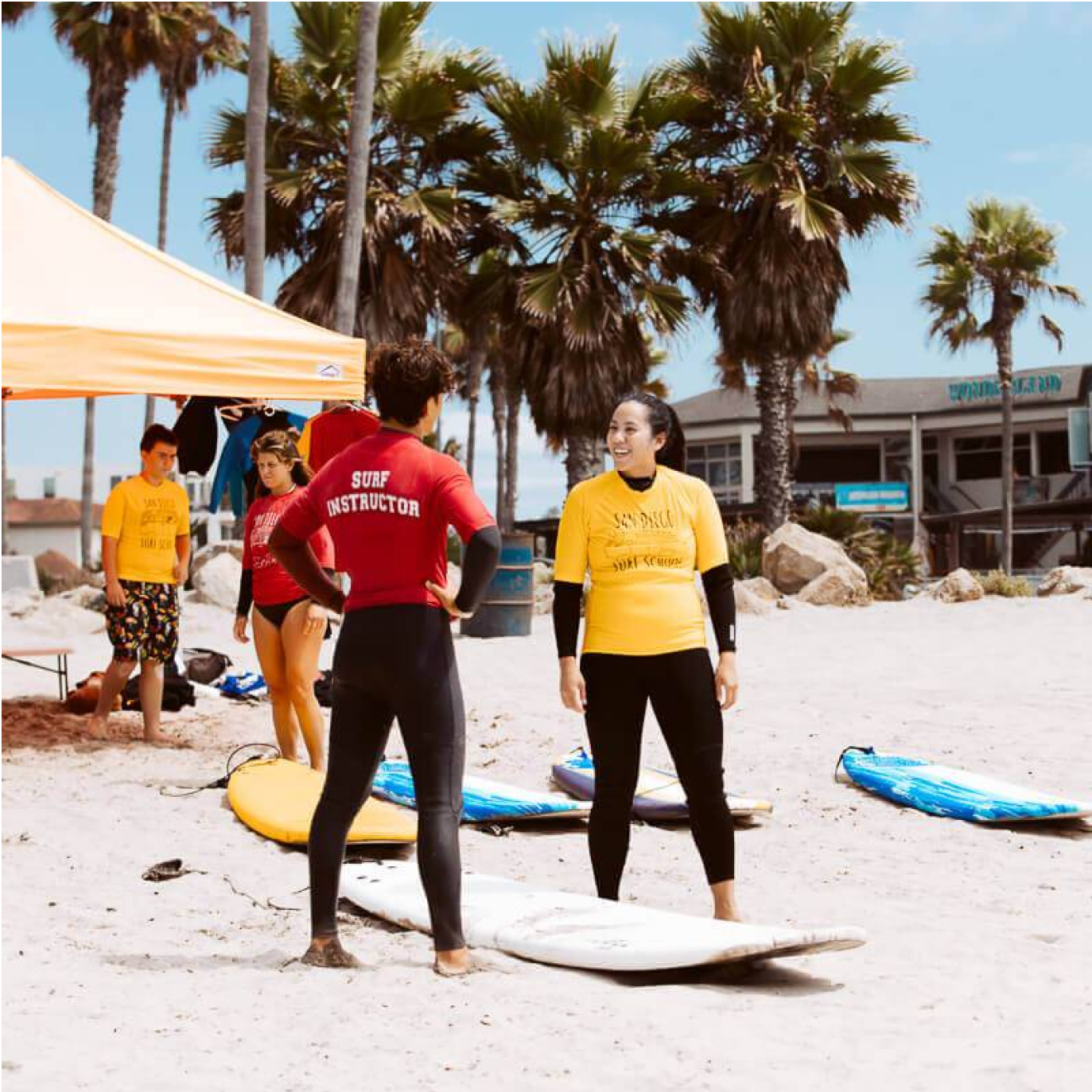Determining your surf level is essential for selecting the right waves and surf spots, as well as for your safety and enjoyment while surfing. Surf levels are typically divided into four categories: beginner, intermediate, advanced, and expert. Here’s how to know your surf level:
- Self-Assessment: Be honest with yourself about your skills and experience in the water. Consider factors like your ability to paddle, catch waves, ride waves, and control your surfboard.
- Take Lessons: If you’re new to surfing, consider taking lessons from a certified surf instructor. They can assess your skills and help you progress while providing valuable feedback on your abilities.
- Understand the Categories:
- Beginner: You are new to surfing or have limited experience. You are still learning the basics of paddling, balancing on the board, and catching small, white-water waves.
- Intermediate: You can paddle effectively, catch unbroken waves, and ride them. You are working on improving your technique and catching more challenging waves.
- Advanced: You have a good level of skill and can handle larger and more powerful waves. You are comfortable in different surf conditions and have developed your own style.
- Expert: You are highly skilled and experienced, comfortable in a variety of surf conditions, and capable of handling very challenging waves. You may also participate in competitions.
- Seek Feedback: Surf with more experienced surfers, and ask for their opinion on your skills. They can provide valuable insights and help you assess your level.
- Surf Conditions: Your surf level may vary based on the surf conditions. What you can handle on a small, mellow day may be different from what you can handle on a big, powerful day. Consider your comfort and experience in various conditions.
- Safety: Always prioritize safety. If you’re unsure about your abilities in specific conditions or surf spots, it’s best to err on the side of caution and select waves and locations appropriate for your level.
- Progression: Keep challenging yourself but within your skill level. Gradually move from smaller to larger waves, and don’t rush your progression.
- Respect Local Etiquette: Be aware of local surf etiquette and adhere to it. Surfing communities often have unwritten rules that help maintain safety and order in the lineup.
- Practice and Patience: Surfing is a skill that takes time to develop. Continue to practice, learn from your mistakes, and be patient with your progression.
Remember that surf levels are not fixed; they can improve with time and effort. What’s most important is that you enjoy the sport, stay safe, and continue to learn and grow as a surfer. Know your surf level to have better enjoyment with the sport!






